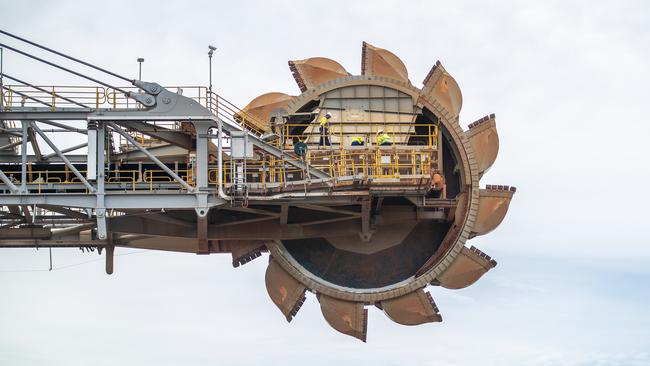Mining giant Rio bows to green group pressure
Mining giant Rio Tinto has begun a review of its industry association memberships worldwide.

Mining giant Rio Tinto has begun a review of its industry association memberships worldwide in the wake of a push by green groups to split the Business Council of Australia over its stance on climate change and coal.
The Australian Conservation Foundation confirmed it was having “constructive conversations” with major corporate members of the BCA about the group’s stance on climate change. “We understand several companies are currently reviewing their industry association memberships,” an ACF spokesman said,
Rio Tinto, a BCA member, announced from London it would review its association memberships globally as industry bodies emerge as targets for green campaigners.
Together with BHP, Rio was instrumental in getting the Australian Minerals Council to soften its stance on coal.
ACF said no discussions had been held with Rio but it last month wrote to the BCA and major corporate members threatening a repeat of the lobbying effort that saw BHP and Rio put pressure the MCA to change its stance. The Minerals Council said BHP and Rio both remained members of the council.
Rio chairman Simon Thompson said: “I think the MCA has actually changed its policy position.”
BCA member companies targeted by the ACF include Telstra, Bupa, Medibank, Coles, Woolworths, Commbank, Westpac, NAB, ANZ and Qantas.
BCA chief executive Jennifer Westacott has accused the ACF of “running a deceitful campaign that misrepresents the business council’s record on this issue.”
ACF blames the BCA for developing the phrase “economy wrecking” which became a cornerstone of Coalition arguments against action on climate change.
Since the ACF campaign began, the BCA has softened its rhetoric on the opposition’s climate policies. “The absence of certainty on climate policy from both sides of politics … has caused companies to be reticent about investing,” Ms Westacott said.
ACF economist Matt Rose said the group had received more than 5000 responses to an online campaign that targeted customers, employees and shareholders of major corporations.
“As a first step, we will communicate these responses directly to the relevant companies,” Mr Rose said. “From here, our focus will be on further engaging with the BCA’s corporate members directly on their climate change policies and industry association memberships.”
Another green group, Australasian Centre for Corporate Responsibility, has launched a “lobby watch” project to track and highlight the influence of groups on climate and energy policy during the federal election campaign.
Mr Thompson told Rio shareholders that all industry associations with which the company was involved or of which it was a member “will always advocate in line with the policy statement we put out on climate change”.
Rio said it would work in partnership with industrial associations to ensure their advocacy was consistent with its own public position and the Paris Agreement.
It would back industry groups that “publicly argue against subsidies for coal and for the development of energy supply to be done in a technology-neutral way, consistent with the Paris targets”.


To join the conversation, please log in. Don't have an account? Register
Join the conversation, you are commenting as Logout